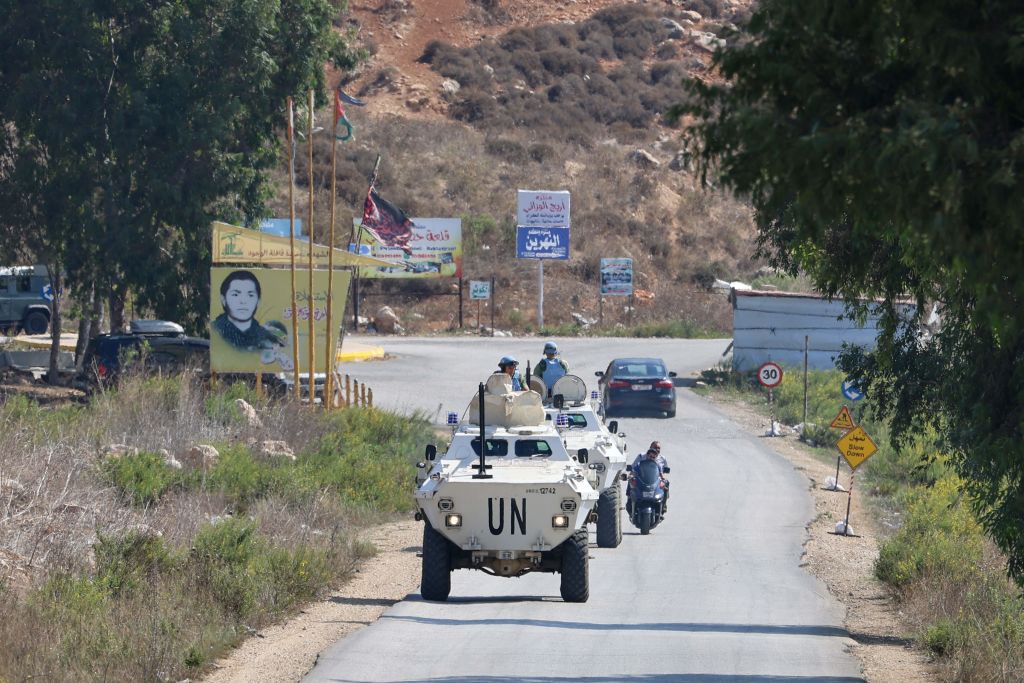
On 15 October, the United Nations Interim Force in Lebanon headquarters was hit by a missile of unknown origin. This isn’t the first time UNIFIL has been caught in the crossfire of conflict between the Israel Defence Forces and non-state armed actors. Despite the presence of a UN peace operation, exchanges of fire have continued in southern Lebanon since the 7 October Hamas attack on Israeli civilians. The rapid escalation of hostilities between Hezbollah and the IDF is threatening regional and even global security.
Despite the inclusion of the word interim in its name, UNIFIL is one of the UN’s longest running peacekeeping missions. As the situation in south Lebanon deteriorates, should UNIFIL go on, given its seeming inability to prevent serious outbreaks of fighting?
UNIFIL’s main role is to maintain peace and security on the Blue Line that demarcates the territories of Lebanon and Israel, which remain officially at war. The Blue Line isn’t a border, but a line of withdrawal between two militaries. At the political level, there continues to be no formal contact between the Israeli and Lebanese governments about a path to an official, permanent peace.
I have written before about why restraining Hezbollah is so difficult, but since 2017 the situation has changed considerably. The group has been steadily escalating its activity and UNIFIL has struggled with reduced local support. One early signal has been reduced access to parts of villages, often at night, when residents would close roads and prevent UNIFIL from patrolling.
Another indicator of the changing environment has been an increase in attacks on UNIFIL patrols. While the mission had faced the occasional attack, typically by groups of young men looking to steal expensive equipment, in recent years these incidents have become more serious. The most tragic was the murder of an Irish peacekeeper in the southern village of al-Aqbieh in December 2022. The incident was a culmination of years of eroding support for UNIFIL in south Lebanon.
On the other side of the Blue Line, many in Israel argue that UNIFIL is doing little to control Hezbollah. The issue came to a head in 2018 after the discovery of six Hezbollah-built tunnels from Lebanon into Israel.
Hezbollah has upped the ante in other ways too. Surveillance equipment on the technical fence on the Blue Line has been tampered with, unauthorised firing ranges are operating south of the Litani River, and outposts have been set up close to the Blue Line. Most recently, in response to Israel’s reoccupation of the divided town of Ghajar, Hezbollah set up two tents in contested territory on the Blue Line, one of which remains despite repeated Israeli requests that both be removed.
However, Israel’s support for UNIFIL has been lukewarm at best. Over the years, UNIFIL has received marginal advance notice of Israeli invasions and has at times been refused access to Israeli territory after security incidents. Israel refuses to allow UNIFIL to patrol both sides of the line, even though this would improve local Lebanese perceptions of the mission’s impartiality, and refuses to refrain from conducting surveillance overflights in Lebanese airspace. During the civil war, official and unofficial militia sponsored by Israel gave UNIFIL as many headaches as the Palestinian militia, Amal and Hezbollah.
There has been increased debate in the UN Security Council of late about UNIFIL’s mandate, with criticisms of a lack of progress in disarming Hezbollah and establishing a weapons-free zone south of the Litani, high troop numbers, and the increasing lack of freedom of movement.
But in a conflict where no side can claim complete innocence, the value of UNIFIL is its ability to shine an international spotlight on the Blue Line and keep all parties a little more honest. There’s also no doubt that UNIFIL has prevented flare-ups and still inhibits an overt Hezbollah presence.
In the absence of an official peace, the conflict between Lebanon and Israel is likely to continue and when shocks to the system occur there’s little UNIFIL can do but observe. However, it has shown that it can manage the post-conflict environment well, including by deconflicting security incidents to stop them from escalating and accidentally triggering a new war.
Over the past 45 years, the mission has been retained because the international community understood that things would be worse without it. The intractable nature of the conflict and important geostrategic position of Lebanon have demanded some form of peace operation, so the practical choice at hand for the UN has been whether the expense and risks of establishing a new mission are worth it when one is already in place. Maintaining the status quo has always won out.
UNIFIL has also proven its dedication to helping local civilians during conflict and to providing shelter, emergency medical aid and evacuation support, often at great risk to peacekeepers. When the fog of war clears, UNIFIL has always been there to help local civilians recover. Helping to resuscitate communities devastated by conflict is a critical aspect of its work. While civilians in south Lebanon know they can’t depend on UNIFIL to protect them, they know it will be there help them pick up the pieces.
For now UNIFIL remains committed, saying: ‘In the event of all-out war, we won’t abandon our site. We didn’t in 2006, and we won’t this time either.’ UNIFIL may not be able to stop a war, but it can help ease the pain for civilians living along the Blue Line. For a country in the midst of a heinous economic crisis, this support is critical.

